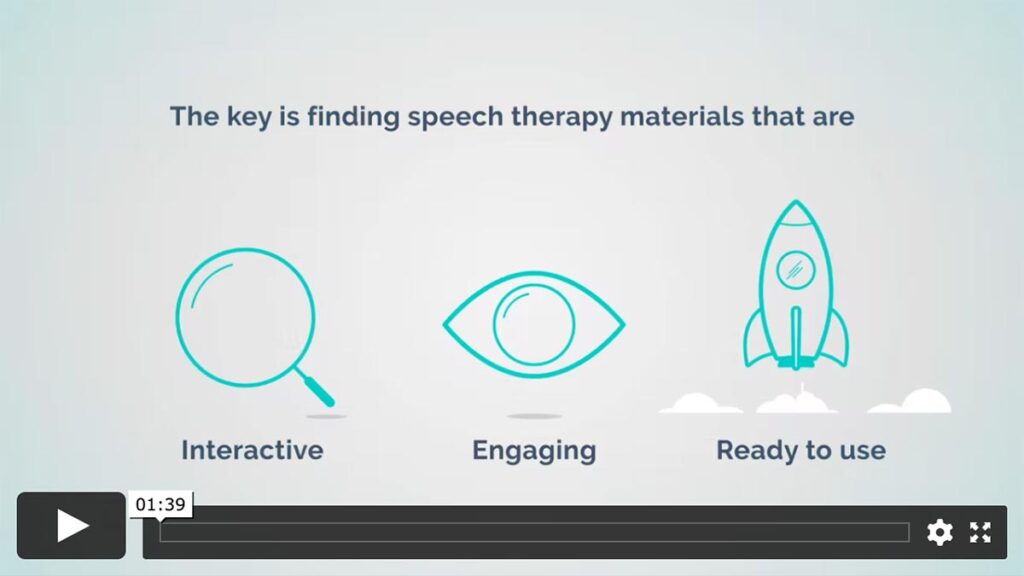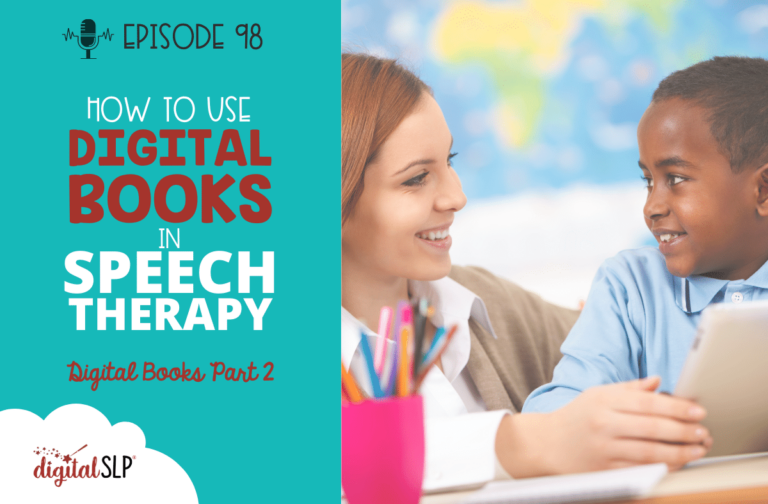Have you ever wondered what myths surround the subject of AAC? In this episode, I talk about 6 Augmentative and Alternative Communication myths and the truth behind what claims are real or not. Tune in below to learn more and be sure to check out the links and resources section at the bottom of the page!
Links & Resources
- The Digital SLP Membership
- Susan Berkowitz
- Rachel Madel
- Beautiful Speech Life – Anne Page
- PrAACtical AAC – Carole Zangari
- Augmentative & Alternative Communication – ASHA
Full Transcript of Podcast: 6 AAC Myths You Should Know About
Episode 63: 6 AAC Myths You Should Know About
You're listening to the Speech Space Podcast, a podcast full of tips and resources for SLPs. I'm your host, Jessica Cassity, and this is Episode 63.
Hey there! Today, we are going to be talking about some AAC myths. But before we get started, I wanted to let you know that this podcast is brought to you by The Digital SLP membership site, which is a site that features time-saving no print and low prep resources for SLPs. The membership door's just closed back up. But if you'd like to learn more about the membership or jump on the waiting list, head on over to thedigitalslp.com/digitalslp. Okay. So, like I mentioned today, we're going to be talking about some AAC myths that are very common and constantly circulating. So before we do that, though, I did want to mention some other SLPs that I'm very fond of, that are overly familiar with AAC, that I think that you should either follow or head on over to their website and check out. And those people are Susan Berkowitz, Rachel Madel, Anne from Beautiful Speech Life, and Carol from PrAACtical AAC. And I'm going to make sure to link to all of their websites below so you can connect with them and see some of the great content that they put out there about AAC. So let's go ahead and dive right into the myths.
Myth number one. The child that you're working with should be of a certain age to start using AAC. Now, this simply is just not true. AAC positively impacts skills that are really important to our young children like language development, cognition, literacy skills, not to mention that it assists with participation in social, educational, and play environments and interactions as well. So it doesn't negatively affect their development. It actually enhances it. And if we want to look at some research on this, there is a research that shows that AAC use can lead to an increase in receptive vocabulary in young children. And if you want to look at that further, that was done... There's some research that was done by Brady in 2000 and also some done by Drager and colleagues that was done in 2006. If we want to look at some more research, it shows that AAC use with preschool-aged children has been associated with increased use of multi-symbol utterances and development of grammar. And further research indicates that early implementation of AAC can aid in the development of natural speech and language. And it can increase vocabulary for children ages three and younger. So that was looking at a group of our younger population, which I think is key here because we're trying to debunk the myth that you need to wait until a certain age to start using AAC. And I will reveal to you later in one of the other myths, I believe it was myth number five or six, but I will reveal the age that they used to wait until before they used AAC with children.
Okay. Myth number two. Only those who are nonverbal need AAC. Now this is another myth. AAC is not reserved for just those who are nonverbal. There are many kids out there who are verbal or minimally verbal, and they need a device to assist with expanding their language so they can actually have their needs and wants met in addition to having the ability to have more meaningful social interactions as well.
Myth number three is that you must use low-tech AAC first. Now I feel this is something that many SLPs believe. I also feel that sometimes we start with this because it might be the only resource that we have. However, there just isn't any evidence that shows that a basic paper system must first be used before moving on to a high-tech system. So something to keep in mind.
Myth number four is that AAC hinders speech development. There are many research studies now that show the AAC does not hinder speech development but it actually can improve vocabulary and speech. And I know we touched on that a little bit in myth number one. But if we want to look further at some research, there was some work done by Millar, Light, & Schlosser in 2006. And then some done by Sedey, Rosen, & Miller in 1991 that revealed that the use of AAC does not affect motivation to use natural speech, but it can actually help to improve natural speech when therapy focuses simultaneously on natural speech development and use of AAC is used in a multimodal approach. There's also some research that was done by Kasari in 2014 that showed that intervention for minimally verbal school-aged children with autism spectrum disorder that included a use of a speech-generating device. It increased their spontaneous output and use of novel utterances when compared with the same interventions that did not include the use of a speech-generating device.
Okay, let's move on to myth number five, that myth is that there are cognitive prerequisites to using AAC. So this is another one that I think is really highly believed and even taught a lot by SLPs. You know, of course not intentionally trying to spread bad information, but I could imagine that there are probably many SLPs that believed this myth. So it further perpetuates the myth by continuing the circulation of it. But people who have significant intellectual disabilities can successfully use AAC. Children don't even need to be able to understand that a picture represents an object in order to use AAC. Now that might be surprising to some people. Research suggests that impaired cognition does not preclude communication and that development of language skills can lead to further cognitive gains. It's also important to keep in mind that some measures of precommunicative cognitive ability may be invalid for some populations due to the challenges of being able to accurately assess cognition in the absence of stronger communication skills. Now, according to the ASHA website, AAC intervention for children with complex communication needs helps develop functional communication skills. It promotes cognitive development. It provides a foundation for literacy development and it improves social communication. And they are citing that based on research from Drager and colleagues that was done in 2010.
Let's move on to our final myth, which is myth number six, and that is that AAC should be used as a last resort. So now AAC used to be considered a last resort back when it was new to our field. And I kind of cringed when I was learning about this -- that there was a set of guidelines for choosing whether or not to pursue AAC, and those guidelines were set back in 1980, I believe. But that checklist wasn't actually implemented until a child had no speech by the age of eight. So it's kind of crazy to think about how much has changed since then. Like we talked about earlier, we don't want to consider AAC as a last resort, since it can help so much during the earlier years because we don't want to wait until communication failure occurs. So if possible, we want to be using it with our young children when they're... during a time frame of when those skills are generally developing, rather than waiting until we've passed that phase and missed an opportunity to intervene sooner.
Okay. So I hope that you learn something new today. I hope that I debunked some myths for you and I thank you so much for tuning in and listening to the podcast. I always appreciate your support. To access the show notes from today's episode, you want to go to bitly.com/TSSEP63. And like I mentioned in the beginning of the show, the doors to the membership are closed right now. But if you'd like to learn about how you can cut back on your prep time this year and jump on the waitlist, head on over to thedigitalslp.com/digitalslp. Okay my friends, that is all for me for today. Thank you again for tuning in, and I will catch you again in a few weeks.













Recent Comments